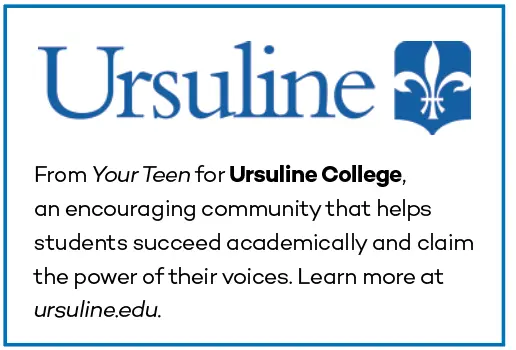Your top questions answered by professionals in the know.
My 11th grader most definitely did not have the junior year we expected. Not only did he trade his tennis season and the prom for endless hours of gaming, he also felt as though his college search has been weirdly suspended, even though we realize it’s still crunch time. But with his standardized tests canceled twice and campuses closed to visitors due to the pandemic, the college search part of our calendar is as empty as the rest of it.

Of course, these hardships don’t hold a candle to the milestones our seniors are missing, compounded by endless question marks about what college campuses might look like next year. With so many students and parents wondering what’s next, we found the answers to five burning questions they’re asking right now.
College Admissions Questions Everyone is Asking
1. How can I find out more about schools when they are closed?
Spring and summer are often prime time for juniors and seniors to visit schools: juniors to start deciding on their lists of schools to apply to, and seniors to take a final look once they’ve received their admissions letters. (Decision day is traditionally May 1; however, many colleges have extended that deadline due to the pandemic.)
| [adrotate banner=”160″] |
But just because the campus is closed doesn’t mean you can’t still get information, assures Mary Lynn Perri, assistant dean of enrollment management and financial aid for Ursuline College in Pepper Pike, Ohio. Stay in touch with the admissions office, she urges. “We’re still here to answer your questions,” she says, suggesting your student start with an email and then arrange a phone or video call. “I have hosted two recent meetings with an admissions representative, coach, faculty member, and the family,” she says. “In some ways, having all the various participants on a Zoom call at one time can make it easier for parents and students to get their questions answered.”
2. What about virtual college events?

Of course, not every family has reliable access to internet service, so traditional outreach methods of email, phone, and snail mail are still important. “Remind your teen to check email frequently, including spam and promotions folders,” she says. “This is still the top way for colleges to connect with students to share information and updates, and you don’t want to miss out.”
3. Given many new test-optional policies that are being adopted by colleges, what should juniors know?
While many schools had already been heading toward a test-optional model, even more are waiving the test requirement for the upcoming admissions cycle, which means the remaining pieces of the application will carry more weight, says Sara Harberson, a former dean of admissions and founder of the blog Application Nation.
“The transcript always matters the most. Students with extremely strong transcripts will be the most competitive, with or without test scores,” she says. And remember, they will be looking for rigorous class choices as well as grades. But, she adds, just because a school is test-optional doesn’t mean it won’t consider scores in their decision-making process. “Even if a college drops the testing requirement, they will always value high test scores. So go ahead and send the test scores if they are good, but don’t sweat it if it’s not your student’s strong suit.”
4. What’s one part of a college application that juniors should focus on now?
Students should keep up with their classwork and prep for standardized tests if they choose to take them. But there’s another key application piece they can finish now—identifying teachers and asking them for recommendation letters, suggests Harberson. “The most popular teachers sometimes have to put a cap on the number of letters they agree to write. Secure your prospective letter writers early, ideally before the end of junior year.” Unless your child is applying to a specialized program, such as studio art or music, it’s best to focus on teachers from core subjects: English, math, history, science, and foreign language.
5. What happens if my financial circumstances change?
With the topsy-turvy economy and job loss impacting many families, the financial considerations can be immense and unsettling. Perri reminds graduating seniors who may be concerned about a loss of income to check with their school to see if there is an appeal process that might make them eligible for additional aid. At Ursuline College, for example, they have a form where families can report their estimated expected 2020 income to be used in lieu of the income information reported on the FAFSA. “Most colleges are asking families to wait until after June 30 to complete these forms so that the estimation process will be a bit easier,” she says.

While nobody likes uncertainty, there is some comfort in knowing that all of us—families and colleges alike—are in the same boat. So, keep taking those virtual campus tours, triaging essay topics, and nudging about test prep if need be. With luck, you’ll soon be visiting the college bookstore in person to buy that t-shirt!





